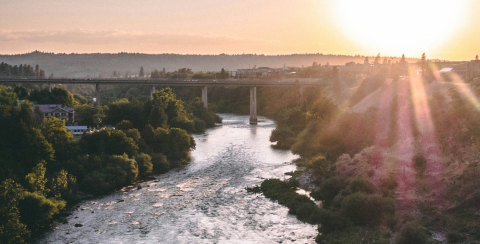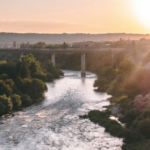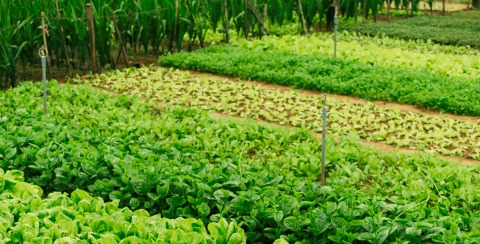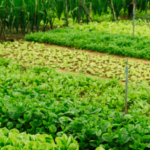NATURAL CAPITAL
Healthy ecosystems provide very significant economic contributions, and should be measured in more ways than just money. A true cost pricing that assigns prices based on actual social and environmental costs should be understood.
To protect nature, and thus long-term economic and social growth, we must accurately value its contributions, invest in sustainable practices, and ensure equitable distribution of its benefits.
ECOSYSTEM SERVICES
Ecosystem services — such as water purification and climate stabilization — are crucial benefits provided by healthy ecosystems, but they are often undervalued in economic terms. These services are essential for human well-being and rely on maintaining the integrity of natural landscapes including keeping them free from contamination.
Recognizing and valuing ecosystem services can incentivize conservation efforts allowing for the flow of the respective service to continue.
ECOLOGICAL LAND-USE
Coordinated land-use planning is crucial for the well-being of cities, rural areas, and wildlands alike. Urban sprawl into surrounding countryside puts pressure on farmers and natural spaces, leading to environmental degradation and increased costs for infrastructure.
Establishing compact towns and cities with urban growth boundaries can mitigate sprawl, preserve rural landscapes, and facilitate the restoration of connected wildlands. This promotes biodiversity and efficient use of resources.
SOCIAL CAPITAL
Society thrives when it works in harmony with nature. Understanding the relationship and value of culture in economic decisions and environmental stewardship is important.
By investing in community groups, green businesses, and fair ownership strategies, we can create a better balance between social, economic, and environmental needs for a more widespread increase in quality of life.
COMMUNITY
The frantic pace and physical isolation of life now-a-days causes difficulty maintaining the casual interactions and long-term formal organizations that sustain communities. When compact towns and cities are woven together with a wide mix of uses, income levels, and transportation options, community will most often flourish, becoming incubators for cultural diversity and preservation.
We must encourage human-scale neighborhoods that create opportunities for community and democracy through their physical design and mix of uses, while supporting community-centric initiatives focused on fairness, placemaking, and celebration of diverse culture.
FUNDAMENTAL NEEDS
In the midst of unprecedented wealth throughout the bioregion, there are still rural and urban pockets of poverty, hunger, sub-standard housing, and poor healthcare. Fundamental needs are best met in ways that build community and society.
We must ensure that everyone in the bioregion has fundamental needs met as a non-negotiable condition of attaining reliable prosperity. At minimum, these needs include nutritious food, shelter, healthcare, education, and ecosystem services — all provided affordably and reliably.
ECONOMIC CAPITAL
Currently, nearly all economic power is concentrated among just a few industries. Capital should be invested in sectors and activities consistent with reliable prosperity while being rooted in local and bioregional economies, to be circulated more among household economies.
By reallocating capital from declining industries to sustainable sectors, we can promote broadly shared wealth, local asset development and perpetuate reliable prosperity.
BIOREGIONAL ECONOMIES
Globalization magnifies economic insecurity and cultural homogenization while degrading ecosystems into standardized commodities. Bioregional economies —which are tailored to local ecosystems and cultures— prioritize local self-sufficiency, fair trade, and true cost pricing.
By reclaiming economic sovereignty, bioregions can cultivate diverse, resilient economies that are aligned with local ecosystems and cultures.
LOCAL ECONOMIES
When local economies rely wholly on a few industries, they become vulnerable to changes in outside markets and can hinder community development. Diverse local economies thrive by meeting local needs, circulating money within the community, and utilizing resources efficiently.
Encouraging local ownership, promoting diverse agricultural practices, and even promoting local currencies and trading systems can further bolster economic diversity and stability.
HOUSEHOLD ECONOMIES
Consumption choices may lead us to a treadmill of high expenses, stressful work, and an inability to express our core values. We may trade wonderful time with family and friends for unnecessary things.
By aligning spending habits with our values and considering the impact of purchases, we can find balance and connection in our lives. Practicing mindful consumption can help build local assets and lead to greater financial independence and stability.
REGENERATIVE BUSINESS
Business practices often harm ecosystems and communities due to the absence of appropriate market signals. In contrast, a green business prioritizes nature, society, and profit simultaneously, thereby finding opportunities for growth while benefiting the environment and society.
By enhancing resource efficiency, utilizing renewable energy, and prioritizing community benefit, green businesses create long-term value.
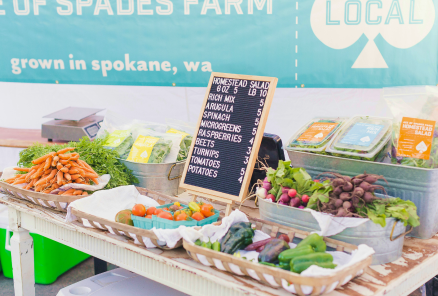
ABOUT US | OUR MISSION
EQUITY – ECOLOGY – ECONOMY
People – Planet – Prosperity — The New Story is a local collaboration, working to shift the Inland Northwest (and beyond) from an unsustainable grind to a joyful, more viable way of moving forward.
What is “The New Story”? The New Story seeks to collaborate towards a better future — one that encourages growth and liberation, healing and harmony — by rejecting the old stories of fear, aggression, and violence. At its core, it is a web of patterns depicting a whole system representing Reliable Prosperity…for all.
ABOUT US | OUR VISION
WHAT WE DO
Using the pattern map to depict sustainable growth, we seek to bring people together to actively build a better community, to live the New Story — for the good of the people AND the planet.
We not only work to support and highlight organizations living the new story, we intend to provide resources for those who seek to live the new story in their own lives. If your business or a business you know of is actively living the New Story get in touch and let us know!
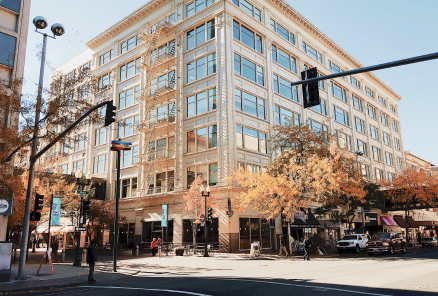
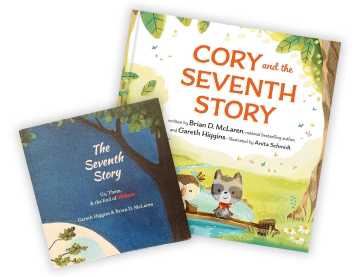
The New Story as a Fable — Written in fable form for adults and children, The Seventh Story and Cory & the Seventh Story contextualize The New Story — Reliable Prosperity — in a narrative format.
Cory & the Seventh Story by Brian D. McLaren & Gareth Higgins
The Seventh Story by Gareth Higgins & Brian D. McLaren
Visit The Seventh Story website to find out where to purchase a copy.



